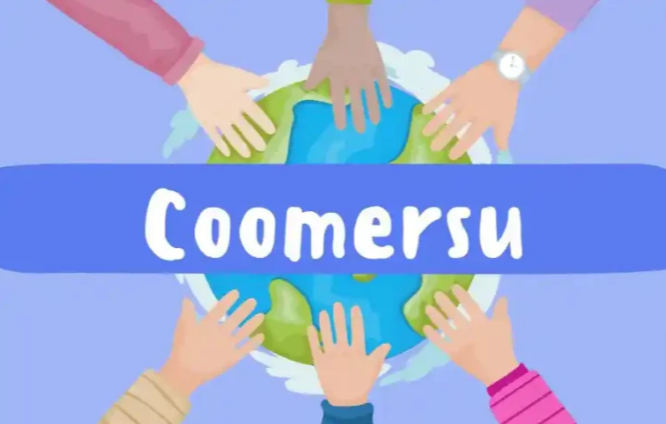In the expansive panorama of internet culture, new terms and concepts emerge regularly, reflecting the evolving dynamics of human conduct in virtual spaces. One such term that has gained traction nowadays is “Coomersu.” While it could sound strange to many, Coomersu encapsulates a complicated amalgamation of societal traits, online subcultures, and personal psychology. Understanding this idea calls for delving into its origins, implications, and broader societal context.
Unraveling the Origins:
Contents
The period “Coomersu” is a portmanteau, combining elements of two distinct phenomena: “Coomer” and “Susu.” The period “Coomer” originated from internet forums and imageboards, first of all, as a pejorative label for individuals who gave the impression of being excessively targeted on sexual content or activities. Over time, it evolved to explain a broader archetype of net users who prioritize on-the-spot gratification and indulgence in hedonistic pleasures, frequently on the rate of personal improvement or significant engagement with the world.
On the opposite hand, “Susu” refers to a concept conventional in East Asian cultures, especially in China. It denotes the act of assisting or subsidizing a person else’s consumption, often within the context of online platforms. Susu lifestyle involves individuals financially backing content creators, streamers, or influencers whose content material they revel in or resonate with. This financial guide fosters a sense of community and reciprocity among participants.
The Coomersu Phenomenon:
It emerges at the intersection of those two phenomena, representing a symbiotic courting between Coomers and Susu’s way of life. In this context, those who are perceived as Coomers actively interact in consuming sexualized or explicit content material online, at the same time as simultaneously collaborating in the Susu subculture with the aid of financially assisting creators who produce such content. This creates a remarks loop in which creators are incentivized to cater to the alternatives of Coomer audiences, perpetuating the cycle of consumption and aid. The Coomersu phenomenon is characterized with the aid of several key features:
Escapism and Instant Gratification:
Coomersu thrives on the allure of escapism and immediate gratification presented using online content intake. Individuals are looking for haven from actual global responsibilities and demanding situations by way of immersing themselves in a digital realm of stimulation and indulgence.
Monetization of Desire:
Creators in the Coomersu ecosystem capitalize on the monetization of preference, leveraging their ability to produce content material that caters to the fantasies and cravings of their target audience. This frequently includes exploiting sensational or provocative issues to draw interest and monetary assistance.
Community and Validation:
Participants in Coomersu groups find an experience of belonging and validation amongst like-minded those who proportion similar options and desires. The act of assisting creators through the Susu lifestyle reinforces this experience of community, fostering a reciprocal relationship based on mutual pride.
Societal Implications:
The rise of Coomersu reflects broader societal developments and demanding situations, in particular regarding the commodification of intimacy, the erosion of limitations among public and personal spheres, and the normalization of immediate gratification culture.
Impact on Mental Health:
Excessive engagement with Coomersu content could have unfavorable effects on individuals’ intellectual fitness, perpetuating unrealistic expectations, fostering addictive behaviors, and contributing to feelings of isolation or inadequacy.
Normalization of Objectification: The normalization of Coomersu content may also contribute to the objectification of individuals, specifically girls, decreasing them to mere commodities for consumption and validation.
Ethical Considerations:
The moral implications of Coomersu boost questions about the duty of creators, structures, and society at massive in regulating and addressing dangerous content material and behaviors. Balancing freedom of expression with the safety of susceptible individuals is a complex and ongoing undertaking.
Perpetuation of Gender Stereotypes:
Coomersu content material often reinforces conventional gender stereotypes and harmful narratives surrounding sexuality and electricity dynamics. This can contribute to the marginalization and objectification of positive gender identities, perpetuating inequalities and reinforcing dangerous social norms.
Normalization of Harmful Behaviors:
The normalization of Coomersu content may desensitize people to harmful behaviors, along with voyeurism, exploitation, and boundary violations. This normalization could have far-attaining results, each in online interactions and actual-international relationships.
Privacy and Consent Concerns:
The intake and production of Coomersu content material improve good-sized privateness and consent issues, especially concerning the unauthorized distribution of intimate or explicit fabric. The exploitation of people’s images or private facts without their consent will have profound emotional, social, and legal ramifications.
Potential Responses:
Education and Awareness:
Promoting schooling and awareness about the capability dangers and outcomes of Coomersu consumption is vital for empowering people to make informed alternatives about their online behavior. This consists of teaching users approximately healthy boundaries, consent, and essential media literacy competencies to navigate virtual areas responsibly.
Platform Regulation:
Platforms’ web hosting Coomersu content needs to take proactive measures to regulate and slight dangerous cloth, including imposing content hints, age regulations, and reporting mechanisms for inappropriate or abusive content. Platforms ought to additionally prioritize the protection and well-being of their customers by way of imposing guidelines towards harassment, exploitation, and non-consensual content.
Support for Mental Health:
Recognizing the effect of Coomersu intake on intellectual health, it is crucial to provide available resources and guide services for individuals struggling with addictive behaviors, self-esteem problems, or different mental fitness challenges related to their online consumption behavior. This may also encompass counseling, remedy, and online help groups tailor-made to cope with the precise needs of people tormented by Coomersu content material.
Promotion of Ethical Content Creation:
Encouraging creators to produce ethical and consensual content material that prioritizes respect, authenticity, and diversity is essential for fostering a more healthy online environment. Platforms, enterprise stakeholders, and content material creators themselves can collaborate to establish moral suggestions and high-quality practices for content material advent that promotes positive representations of sexuality and relationships.
Community Empowerment:
Empowering communities to advise for high-quality change and project dangerous narratives inside Coomersu spaces is important for fostering accountability and promoting collective well-being. Community-led projects, campaigns, and discussions can raise cognizance, mobilize guide, and preserve creators and platforms liable for their moves and content.
Addressing Systemic Issues:
Intersectionality:
It’s essential to understand the intersectional nature of Coomersu and its effect on marginalized groups. Individuals from marginalized backgrounds, which includes LGBTQ individuals, people of color, and those with disabilities, might also face unique challenges and vulnerabilities within Coomersu areas. Efforts to deal with Coomersu need to be intersectional, acknowledging and addressing the intersecting elements of identity, strength, and privilege that form individuals’ reports online.
Trauma-Informed Approaches:
Many folks who engage with Coomersu content might also have skilled trauma or detrimental existence stories. Adopting trauma-informed methods for content material moderation, guide offerings, and community interventions can assist mitigate capacity damage and offer people with the necessary resources and support to heal and recover.
Promoting Positive Alternatives:
Media Literacy Programs:
Implementing complete media literacy applications in educational settings can equip people with the essential wondering skills important to navigate digital spaces responsibly. By coaching students to research and examine media messages significantly, media literacy packages can empower individuals to face up to dangerous influences and make knowledgeable alternatives approximately their online intake behavior.
Alternative Communities and Content:
Promoting alternative groups and content that offer high-quality, inclusive, and putting-forward areas for individuals seeking connection and guidance online can provide viable alternatives to Coomersu areas. By amplifying diverse voices and perspectives, platforms and creators can foster a subculture of reputation, empowerment, and mutual respect inside virtual communities.
Collaborative Approaches:
Multi-Stakeholder Collaboration:
Addressing the complex demanding situations posed using Coomersu requires collaboration amongst a couple of stakeholders, together with platforms, policymakers, educators, intellectual health specialists, content material creators, and community advocates. By running collectively to increase comprehensive techniques and interventions, stakeholders can leverage their respective expertise and assets to create meaningful exchanges and promote digital well-being.
Research and Data Collection:
Further research and facts series are needed to better understand the prevalence, impact, and underlying dynamics of Coomersu. By conducting rigorous empirical research and gathering information on Coomersu intake styles, user demographics, and related results, researchers can tell evidence-primarily based interventions and policy suggestions to cope with this rising phenomenon correctly.
Conclusion:
In conclusion, the phenomenon of Coomersu, combining excessive intake of sexualized content with economic assistance for creators, poses extensive societal challenges. To deal with these, we must prioritize education, platform regulation, mental fitness guide, ethical content introduction, and collaborative efforts. By fostering responsibility, admiration, and consent online, we can create a more secure and more inclusive digital environment for everyone.
Unique FAQs
1. What is Coomersu?
It is a period that combines “Coomer,” relating to those who closely interact with sexualized online content intake, and “Susu,” a culture of financially supporting content material creators. Coomersu describes the symbiotic relationship among individuals who consume sexualized content and financially assist creators who produce such content material.
2. How does Coomersu vary from conventional online consumption?
It differs from traditional online consumption in its emphasis on the intersection of intake and financial help. While individuals may also engage in diverse styles of content material consumption online, Coomersu especially refers back to the dynamic of financially supporting creators who produce sexualized or explicit content.
3. What are the societal implications of Coomersu?
The societal implications of Coomersu consist of potential effects on intellectual health, reinforcement of harmful stereotypes, normalization of objectification, privacy and consent worries, and perpetuation of harmful behaviors. Coomersu might also contribute to the erosion of wholesome boundaries and the commodification of intimacy.
4. How does Coomersu affect mental health?
Excessive engagement with Coomersu content will have unfavorable results on intellectual fitness, which include fostering addictive behaviors, perpetuating unrealistic expectations, contributing to emotions of inadequacy or isolation, and desensitizing people to harmful behaviors and narratives.
5. What are some capability responses to Coomersu?
Potential responses to Coomersu encompass selling training and recognition approximately its risks and results, imposing platform regulations to moderate harmful content, presenting aid for intellectual health, promoting ethical content material introduction, empowering communities to propose for trade, addressing systemic troubles, and selling effective alternatives to Coomersu areas.



